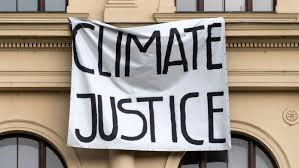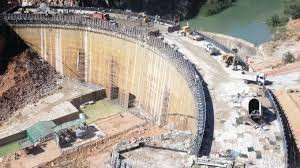
ACROSS Africa, climate change is not a future peril. It is a present tragedy.
Amy Botha writes that in the charred villages of Chad, the flood-menaced shores of Sierra Leone and the disintegrating farmsteads of Malawi, it takes the face of hunger, displacement and silent despair.
“The science has spoken — but the law is dangerously silent.”
While Africa reels from the effects of a crisis it did not create, one question cries out louder than ever: Will the law defend the poor — or betray them?
Climate justice in Africa is not a theoretical argument for summits and policy documents, Botha believes.
It’s a life-and-death issue.
And although there is on the continent a mosaic of environmental law, enforcement is a will-o’-the-wisp.
Foreign investors arrive bearing the gifts of development and the law, more often than not, capitulates to profit.
- Open letter to President Mnangagwa
- Feature: ‘It’s worse right now than under Mugabe’: Sikhala pays the price of opposition in solitary cell
- Masvingo turns down fire tender deal
- Human-wildlife conflict drive African wild dogs to extinction
Keep Reading
Whether it is oil spills in Nigeria, toxic waste in Côte d’Ivoire or industrial encroachment in Mozambique, the story is too often the same — communities are sacrificed on the altar of development and legal systems act as enablers, not as protectors.
When 17 died in the 2006 Trafigura toxic waste dumping scandal, victims in Côte d’Ivoire were excluded by legal manoeuvring and secret settlements in European courts.
The message was clear: justice is for sale if the price is right.
Throughout much of Africa, climate litigation is at the fringe of legal practice.
It is not a subject taken seriously by bar associations.
It is barely taught in law schools.
Few attorneys choose to represent communities that have been victimised by environmental damage — there is no glamour and even less money.
Silence, however, is not neutral. It is complicity.
While European and North American courts evolve — holding governments and oil majors accountable — African judiciaries by and large do not budge.
In Uganda, judicial resistance to the East African Crude Oil Pipeline crumbled under government pressure.
Local legal voices were muzzled.
Western non-governmental organisations jumped into the battle, and the campaign was branded foreign interference.
So, the bigger question is:
What type of development displaces the poor and poisons their water?
Climate change is already reshaping Africa’s legal landscape.
Those displaced by drought do not have a legal status.
With the loss of fertile land, land disputes multiply.
Access to clean water and food is increasingly a constitutional issue — yet many African constitutions say nothing about the right to a healthy environment.
Why is clean air not treated with the same urgency as free speech?
Why are rising temperatures not considered human rights violations?
Africa does not need more sympathy. It needs legal muscle.
That begins with training and funding a new wave of climate lawyers — attorneys who are willing to represent rural communities and fight for justice in the courts.
Environmental law must be a fundamental legal practice, not an add-on.
Bar associations must stop treating climate work as activism and start acknowledging it for what it is: essential advocacy.
Judiciaries must rise to this occasion, recognising environmental degradation as a constitutional threat.
Legislatures must update outdated frameworks to codify the right to a liveable planet.
Because climate justice in Africa is not a future aspiration, it is an urgent necessity.
What side of history will the law stand on?
In the decades that follow, our grandchildren will ask: “Why did they let deserts spread? Why did they let rivers disappear? Why did they let millions suffer while the law did nothing?”
What will be our answer?
It’s time to decide — not just what the law says, but who it serves.






